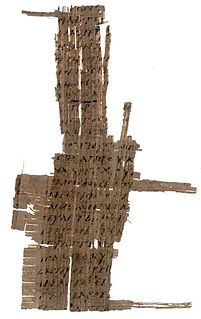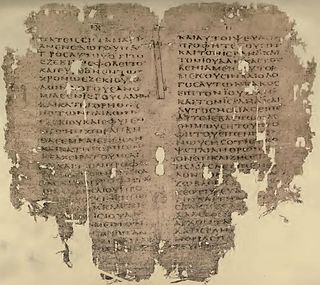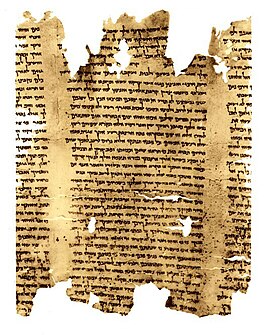Commonwealth of Israel is the English translation of the Greek πολιτείας (politeias) mentioned in Ephesians 2:12. The context of the surrounding verses, Ephesians 2:11-13, implies the uniting of Gentiles with Jews, whom had historically been God's heritage and the object of God's promises.
11 Therefore remember that you, once Gentiles in the flesh—who are called Uncircumcision by what is called the Circumcision made in the flesh by hands— 12 that at that time you were without Christ, being aliens from the commonwealth of Israel and strangers from the covenants of promise, having no hope and without God in the world. 13 But now in Christ Jesus you who once were far off have been brought near by the blood of Christ. (NKJV)

Ephesians 6 is the sixth chapter of the Epistle to the Ephesians in the New Testament of the Christian Bible. Traditionally, it is believed to be written by Apostle Paul while he was in prison in Rome, but more recently, it is suggested to be written between AD 80 and 100 by another writer using Paul's name and style. This chapter is a part of Paul's exhortation, with the particular section about how Christians should live in their responsibilities as households (5:21–6:9) and in the battle against spiritual forces (6:10–20), with a final benediction to close the epistle (6:21–24).

Galatians 2 is the second chapter of the Epistle to the Galatians in the New Testament of the Christian Bible. It is authored by Paul the Apostle for the churches in Galatia, written between 49 and 58 CE. This chapter contains the meeting account of Paul, Barnabas and Christians in Jerusalem, considered "one of the most momentous events in the earliest Christianity", and the dispute between Paul and Peter.

Acts 2 is the second chapter of the Acts of the Apostles in the New Testament of the Christian Bible. The book containing this chapter is anonymous but early Christian tradition affirmed that Luke composed this book as well as the Gospel of Luke. This chapter records the events on the day of Pentecost, about 10 days after the ascension of Jesus Christ.

Romans 12 is the twelfth chapter of the Epistle to the Romans in the New Testament of the Christian Bible. It is authored by Paul the Apostle, while he was in Corinth in the mid 50s AD, with the help of an amanuensis (secretary), Tertius, who adds his own greeting in Romans 16:22.

Romans 15 is the fifteenth chapter of the Epistle to the Romans in the New Testament of the Christian Bible. It is authored by Paul the Apostle, while he was in Corinth in the mid 50s AD, with the help of an amanuensis (secretary), Tertius, who adds his own greeting in Romans 16:22.

1 Corinthians 2 is the second chapter of the First Epistle to the Corinthians in the New Testament of the Christian Bible. It is authored by Paul the Apostle and Sosthenes in Ephesus, composed between 52–55 CE.

Galatians 4 is the fourth chapter of the Epistle to the Galatians in the New Testament of the Christian Bible. It is authored by Paul the Apostle for the churches in Galatia, written between 49 and 58 CE. This chapter contains one of Paul's richest statements in Christology.

Ephesians 1 is the first chapter of the Epistle to the Ephesians in the New Testament of the Christian Bible. Traditionally, it is believed to have been written by Apostle Paul while he was in prison in Rome, but more recently, it has been suggested that it was written between AD 80 and 100 by another writer using Paul's name and style. This chapter contains the greeting, followed by a section about "The Blessing of God" and Paul's prayer.

Ephesians 3 is the third chapter of the Epistle to the Ephesians in the New Testament of the Christian Bible. Traditionally, it is believed to have been written by Apostle Paul while he was in prison in Rome, but more recently it has been suggested that it was written between AD 80 and 100 by another. This chapter is a part of long prayer of Paul, with the particular section about Paul's stewardship of the great divine mystery, the petition for Christ to dwell in the believers' heart, and a doxology.

Ephesians 4 is the fourth chapter of the Epistle to the Ephesians in the New Testament of the Christian Bible. Traditionally, it is believed to have been written by Apostle Paul while he was in prison in Rome, but more recently, it has been suggested that it was written between AD 80 and 100 by another writer using Paul's name and style. This chapter is a part of Paul's exhortation, with the particular section about the mutual interdependence of the Christians as the church and how they should live in the world (4:17–5:20).

Ephesians 5 is the fifth chapter of the Epistle to the Ephesians in the New Testament of the Christian Bible. Traditionally, it is believed to be written by Apostle Paul while he was in prison in Rome. More recently, it is suggested to be written between AD 80 and 100 by another writer using Paul's name and style, however this theory is not widely accepted. This chapter is a part of Paul's exhortation, with the particular section about how Christians should live in the world (4:17–5:20) and in their responsibilities as households (5:21–6:9).

Colossians 1 is the first chapter of the Epistle to the Colossians in the New Testament of the Christian Bible. Traditionally, it is believed to have been written for the churches in Colossae and Laodicea by Apostle Paul, with Timothy as his co-author, while he was in prison in Ephesus, although there are debatable claims that it is the work of a secondary imitator, or that it was written in Rome. This chapter contains the greeting, thanksgiving and prayer, followed by a "Christological Hymn" and the overall thesis of the letter.

Colossians 2 is the second chapter of the Epistle to the Colossians in the New Testament of the Christian Bible. Traditionally, it is believed to have been written for the churches in Colossae and Laodicea by Apostle Paul, with Timothy as his co-author, while he was in prison in Ephesus, although there are debatable claims that it is the work of a secondary imitator, or that it was written in Rome. This chapter continues the exposition about the 'Servant of the Mystery' and the warning against errors.

Colossians 3 is the third chapter of the Epistle to the Colossians in the New Testament of the Christian Bible. Traditionally, it is believed to have been written for the churches in Colossae and Laodicea by Apostle Paul, with Timothy as his co-author, while he was in prison in Ephesus, although there are debatable claims that it is the work of a secondary imitator, or that it was written in Rome. In the previous chapter, Paul has reminded the people that they no longer "belong to the world", but they are to live in intimate union with Christ, and this chapter contains his advice how he wants the Colossians to live.

Colossians 4 is the fourth chapter of the Epistle to the Colossians in the New Testament of the Christian Bible. Traditionally, it is believed to have been written for the churches in Colossae and Laodicea by Apostle Paul, with Timothy as his co-author, while he was in prison in Ephesus, although there are debatable claims that it is the work of a secondary imitator, or that it was written in Rome. This chapter contains the final exhortations and greetings.

Philippians 1 is the first chapter of the Epistle to the Philippians in the New Testament of the Christian Bible. It is authored by Paul the Apostle about mid-50s to early 60s AD and addressed to the Christians in Philippi, written either in Rome or Ephesus. This chapter contains the greeting, thanksgiving, prayer and exhortation as an introduction (overture) to the major narratives in the next chapters.

1 Peter 1 is the first chapter of the First Epistle of Peter in the New Testament of the Christian Bible. The author identifies himself as "Peter, an apostle of Jesus Christ", and the epistle is traditionally attributed to Peter the Apostle, but some writers argue that it is the work of Peter's followers in Rome between the years 70 and 100. After an introductory section, this chapter contains several "general exhortations founded on the blessedness of the Christian state", which continue into chapter 2.

1 Peter 4 is the fourth chapter of the First Epistle of Peter in the New Testament of the Christian Bible. The author identifies himself as "Peter, an apostle of Jesus Christ" and the epistle is traditionally attributed to Peter the Apostle, but some writers argue that it is the work of Peter's followers in Rome between 70 and 100 CE. This chapter focusses on Christ's suffering, Christian charity and advice to those who are persecuted.

Isaiah 57 is the fifty-seventh chapter of the Book of Isaiah in the Hebrew Bible or the Old Testament of the Christian Bible. This book contains the prophecies attributed to the prophet Isaiah, and is one of the Books of the Prophets. Chapter 57 is the second chapter of the final section of the Book of Isaiah, often referred to as Trito-Isaiah.













